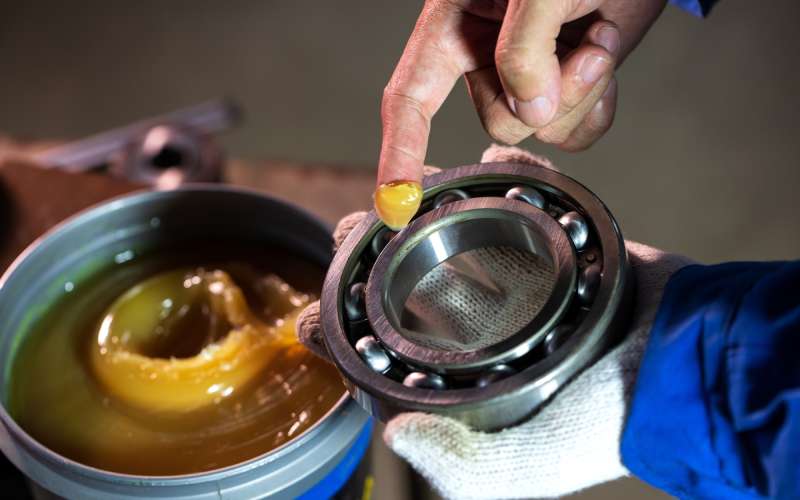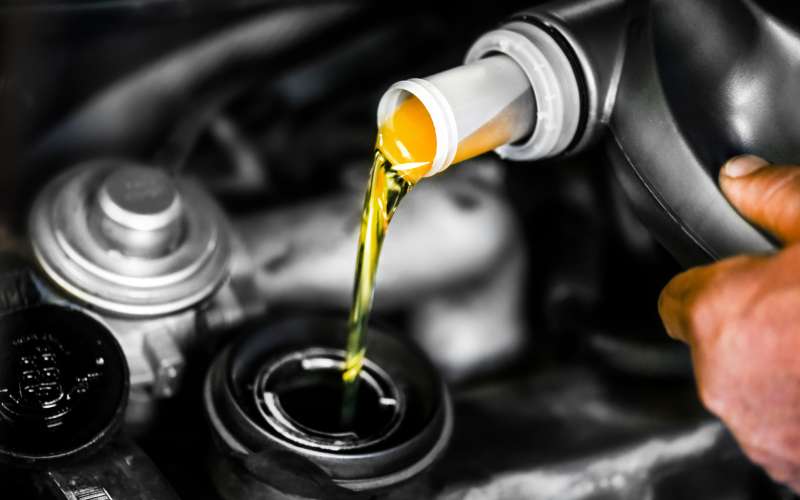How Does the Lubrication System Work in an Engine?

Engines are complex machines that rely on precision and timing. Understanding how the lubrication system works in an engine is crucial, whether you’re new to vehicle maintenance or touching up your knowledge as a mechanic. A well-lubricated engine tends to perform better and last longer, saving you time and money in the long run. Dive more into the intricacies of engine lubrication with this blog.
The Role of Lubrication in Engine Health

Lubrication keeps metal parts from grinding against each other, reducing wear and tear. Engines stay relaxed and efficient when each of its parts moves smoothly. This efficiency translates to improved fuel economy and reduced emissions. Additionally, proper lubrication prevents rust and corrosion by keeping moisture away from the metal surfaces.
Critical Components of an Engine Lubrication System
Every lubrication system contains essential components that seamlessly work together. First, the oil pan beneath the engine acts as a reservoir for engine oil. Maintaining a steady supply of oil for circulation throughout the system is crucial.
Next, the oil pump circulates oil under pressure. It draws oil from the pan and pushes it through the engine’s passageways, ensuring that every component receives adequate lubrication. The pump’s efficiency directly impacts overall engine performance.
The oil filter also significantly removes contaminants such as dirt and metal particles accumulated from the oil before it circulates again. This filtration process prolongs the engine’s life by preventing abrasive materials from damaging internal parts. Regularly replacing the oil filter is essential to maintain engine health.
How Oil Flows Through an Engine
Oil circulation follows a deliberate path within an engine. First, the oil pump draws oil from the pan and forces it through an oil filter. The filter removes debris, ensuring only clean oil enters the engine. This clean oil then travels through a network of passageways, delivering lubrication to critical components such as the crankshaft, camshaft, and pistons.
The oil film separates moving metals, minimizing direct contact and reducing friction. This reduction allows the engine to operate smoothly and efficiently. Oil circulation helps dissipate heat, maintaining an optimal operating temperature and preventing overheating.
Once the oil completes its path, it returns to the oil pan. The cycle repeats, consistently providing fresh lubrication. This constant flow ensures all surfaces receive adequate protection, contributing to the engine’s performance and longevity.
The Science Behind Oil Viscosity
Viscosity refers to an oil’s resistance to flow. It is a critical factor in lubrication, as it determines how well oil coats and protects engine components. Oils with low viscosity flow quickly, providing quick lubrication during cold starts. High-viscosity oils maintain their protective film under high temperatures and heavy loads.
Manufacturers specify oil viscosity grades based on climate and engine requirements. These grades, represented by numbers such as 5W-30 or 10W-40, indicate the oil’s performance in different conditions. The first number represents cold temperature performance, while the second indicates high-temperature stability.
The correct viscosity grade ensures optimal lubrication, reducing wear and enhancing performance. Regularly checking oil viscosity and adhering to manufacturer recommendations enhances engine reliability.
Temperature Regulation Through Lubrication

Proper lubrication reduces friction and aids temperature regulation. Oil absorbs heat from moving parts, maintaining an optimal operating temperature. This heat dissipation prevents overheating, a common cause of engine failure.
Engines operating at high temperatures may benefit from high-performance oil blends. These oils maintain stability and viscosity, even under extreme conditions. They reduce the risk of thermal breakdown and ensure consistent performance by effectively regulating temperature.
What This Means for a Mechanic or Car Owner
Mechanics and car owners can monitor engine temperatures using gauges and sensors. Detecting abnormal temperature fluctuations allows for timely intervention, preventing potential damage. Consistent temperature regulation through proper lubrication enhances engine performance and longevity.
The Impact of Lubrication on Fuel Efficiency
Proper lubrication significantly impacts fuel efficiency. Well-lubricated engines operate more smoothly, reducing resistance and energy loss. This efficiency improves fuel economy, saving car owners money over time.
Why Is Oil Viscosity Critical?
Performing oil changes regularly and using the correct oil type contribute to optimal lubrication. Clean oil with the proper viscosity improves engine performance, enhancing fuel efficiency. Ignoring lubrication needs can lead to increased friction and reduced fuel economy.
The Significance of High-Quality Oil Filters
An oil filter maintains engine health by removing contaminants. High-quality filters trap dirt, metal particles, and other debris, preventing them from circulating within the engine. This filtration process extends the life of engine components.
Why Should You Replace Oil Filters?
Regularly replacing oil filters ensures clean oil continues to flow through the engine. Clogged filters restrict oil flow, reducing lubrication and increasing wear. Mechanics recommend following manufacturer guidelines for filter replacement to maintain optimal performance.
Investing in quality oil filters contributes to long-term engine reliability. These filters provide superior filtration, enhancing oil quality and protecting engine components. Routine filter maintenance complements proper lubrication, ensuring engines run smoothly and efficiently.
Maintaining Your Lubrication System
Maintaining a lubrication system ensures the engine remains reliable. Regularly checking oil levels and adhering to oil change schedules optimizes lubrication. These practices prevent friction-related damage and prolong engine life.
Mechanics recommend inspecting for leaks and monitoring oil pressure to detect potential issues early. Addressing leaks and maintaining proper oil levels avoid lubrication-related problems. Consistent maintenance enhances engine performance and efficiency.
Why You Should Understand Your Vehicle’s Lubrication System
Understanding how the lubrication system works in an engine is essential as it helps you learn more about maintenance and its impact on your engine. Learn more about your engine’s quirks by learning how to change your engine oil if you don’t already know. This information will set you on track to having an engine that lasts a long time.
The Best Oil for Your Car Is at Driven Racing Oil
Understanding how engine lubrication systems work offers valuable insights into maintaining engine health and performance. Lubrication is vital in optimizing engine operation, from reducing friction to regulating temperature.
Driven Racing Oil stands out as a leader in high-performance oil. They are committed to providing excellent products and catering to various vehicles, from racing to classics. Their expert team confidently recommends the best oil blend for your engine, ensuring unparalleled performance and reliability. Give your car a boost in activity with Driven Racing Oil.

You must login to post comments.